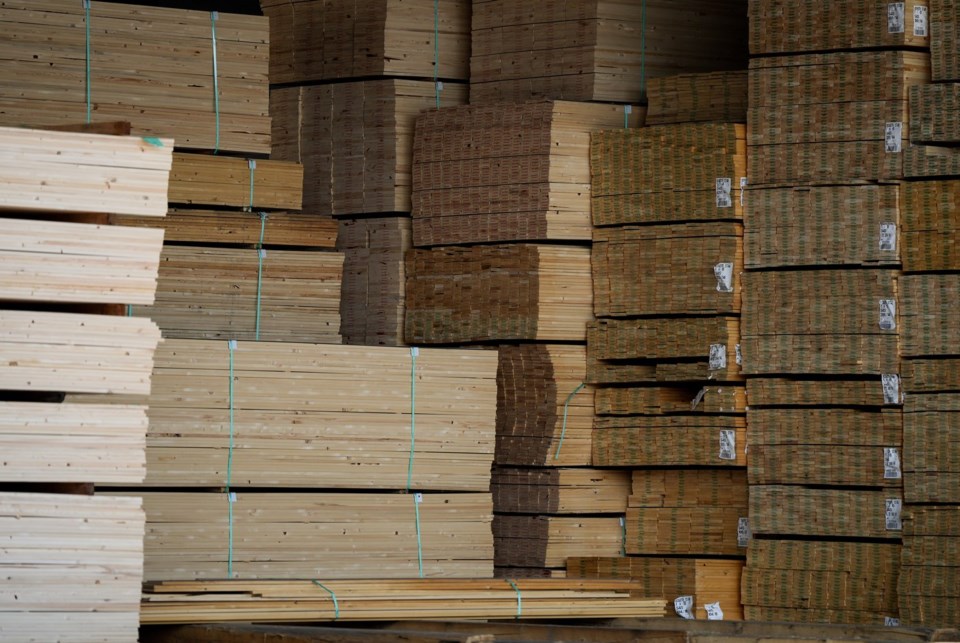The U.S. Department of Commerce says it has made a final decision to more than double countervailing duties on Canadian softwood lumber imports, a move business groups in British Columbia say will harm communities on both sides of the border.
A statement from the American department said the duty for most Canadian companies is being increased to 14.63 per cent, up from 6.74 per cent, after it determined softwood lumber from Canada was being unfairly subsidized.
The increase is on top of a recent jump in anti-dumping duties to 20.56 per cent, bring the total duty level for Canadian softwood to 35.19 per cent.
The department says it will now instruct U.S. Customs and Border Protection to begin collecting the money.
B.C's Minister of Forests Ravi Parmar called the increase "absurd and reckless" in a post on social media, saying it will only worsen the affordability crisis in both countries.
"Like with the anti-dumping duties, I have instructed our province's legal representation to work with our federal partners to appeal this determination. We will use every legal avenue available to fight back," Parmar said.
Kurt Niquidet, president of the BC Lumber Trade Council, said in a statement that the decision places unnecessary strain on forestry-dependent regions in Canada while driving up construction costs for American builders.
The council says both the Canadian and U.S. governments need to make resolving the long-standing softwood lumber dispute a top economic priority.
"In the absence of a negotiated settlement, BCLTC will continue working closely with the Government of Canada and industry partners to defend Canadian interests through all available legal channels, including proceedings under the United States-Mexico-Canada Agreement," the statement said.
The BC Council of Forest Industries said the provincial government needs to take action including streamlining permitting processes, activating provincial timber sales and removing cross-ministry bottlenecks.
“With the right policy tools, B.C. can send a strong message that it is committed to creating a climate where primary and secondary forest manufacturers want to invest, ensuring a steady supply of wood products for B.C., Canada, and beyond,” president Kim Haakstad said in a statement.
Prime Minister Mark Carney was in B.C. this week promising $700 million in loan guarantees for the industry and $500 million for long-term supports to help companies diversify export markets and develop their products.
This report by The Canadian Press was first published Aug. 8, 2025
Ashley Joannou, The Canadian Press



